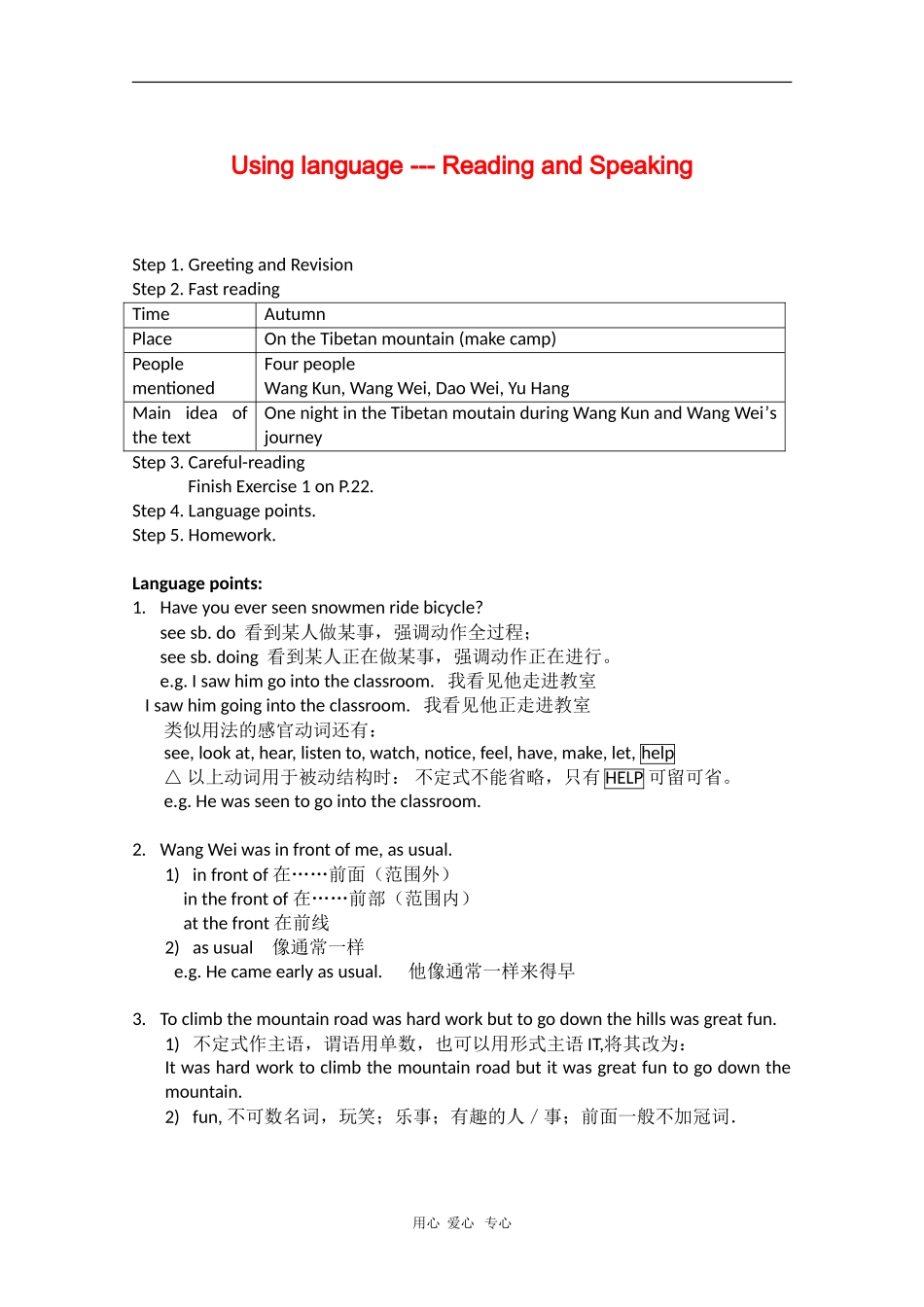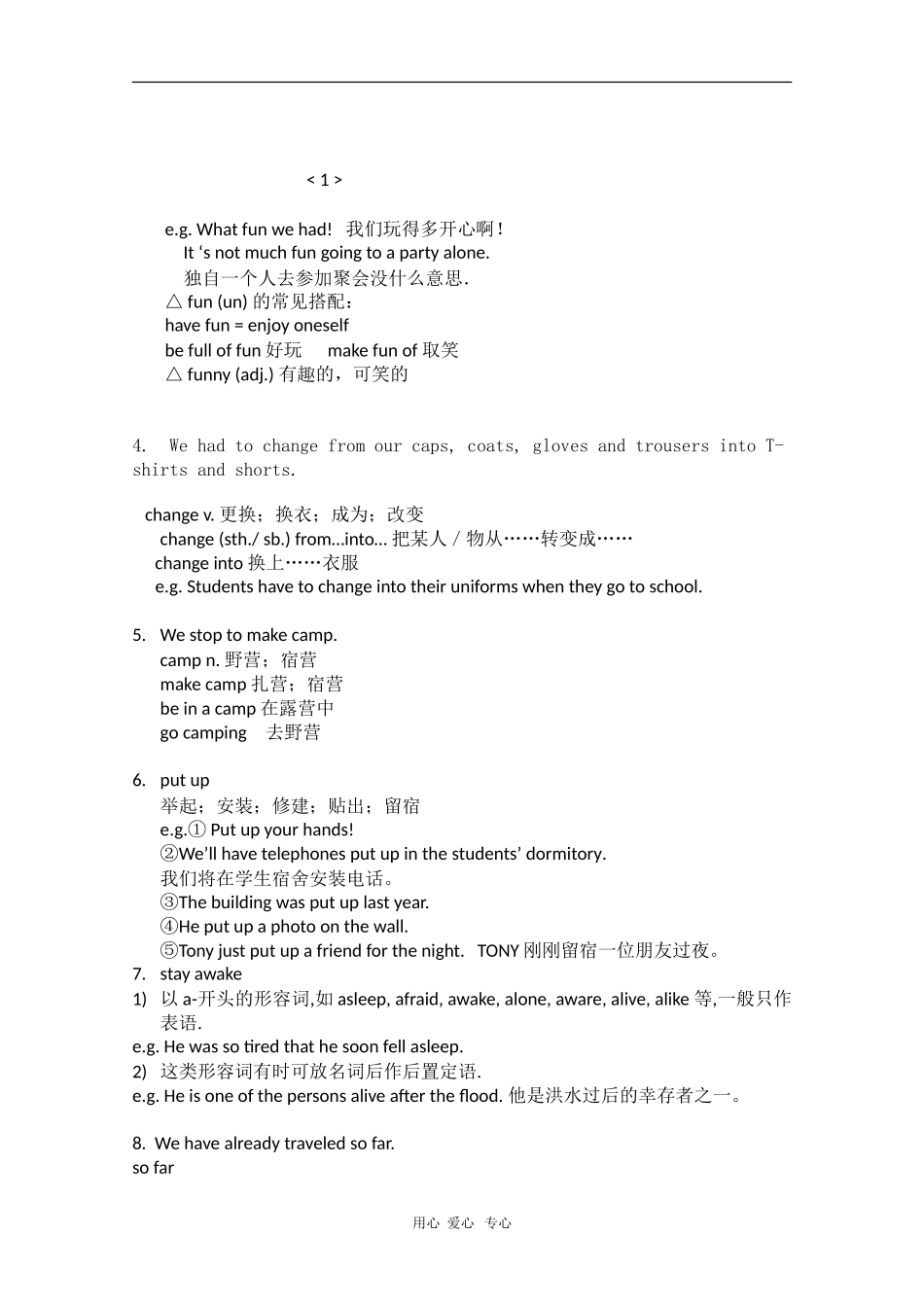Using language --- Reading and SpeakingStep 1. Greeting and RevisionStep 2. Fast readingTimeAutumnPlace On the Tibetan mountain (make camp)People mentioned Four peopleWang Kun, Wang Wei, Dao Wei, Yu HangMain idea of the textOne night in the Tibetan moutain during Wang Kun and Wang Wei’s journeyStep 3. Careful-readingFinish Exercise 1 on P.22.Step 4. Language points.Step 5. Homework.Language points:1. Have you ever seen snowmen ride bicycle?see sb. do 看到某人做某事,强调动作全过程;see sb. doing 看到某人正在做某事,强调动作正在进行。e.g. I saw him go into the classroom. 我看见他走进教室 I saw him going into the classroom. 我看见他正走进教室类似用法的感官动词还有:see, look at, hear, listen to, watch, notice, feel, have, make, let, help△ 以上动词用于被动结构时: 不定式不能省略,只有 HELP 可留可省。e.g. He was seen to go into the classroom.2. Wang Wei was in front of me, as usual.1) in front of 在……前面(范围外)in the front of 在……前部(范围内) at the front 在前线2) as usual 像通常一样e.g. He came early as usual. 他像通常一样来得早3. To climb the mountain road was hard work but to go down the hills was great fun.1) 不定式作主语,谓语用单数,也可以用形式主语 IT,将其改为:It was hard work to climb the mountain road but it was great fun to go down the mountain.2) fun, 不可数名词,玩笑;乐事;有趣的人/事;前面一般不加冠词.用心 爱心 专心 < 1 >e.g. What fun we had! 我们玩得多开心啊! It ‘s not much fun going to a party alone. 独自一个人去参加聚会没什么意思.△ fun (un) 的常见搭配:have fun = enjoy oneselfbe full of fun 好玩 make fun of 取笑△ funny (adj.) 有趣的,可笑的4. We had to change from our caps, coats, gloves and trousers into T-shirts and shorts. change v. 更换;换衣;成为;改变change (sth./ sb.) from…into… 把某人...


